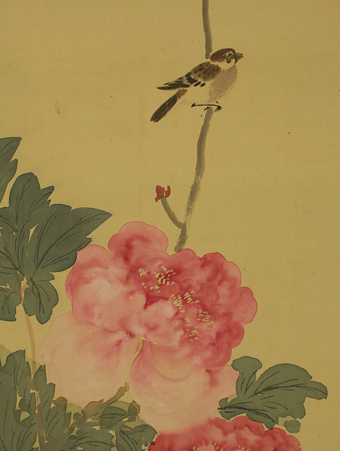St John of the Cross
The qualities of the solitary bird are five:
The first, that it flies to the highest point;
The second, that it does not suffer company, not even of its own kind;
The third, that it holds its beak windward;
The fourth, that it has no specific color;
The fifth, that it sings ever so gently.Las condiciones del pajaro solitario son cinco:
La primera, que se va lo más alto;
la segunda, que no sufre compañía, aunque sea de su naturaleza;
la tercera, que pone el pico al aire;
la cuarta, que no tiene determinado color;
la quinta, que canta suavemente.“Sayings of Light and Love”, 121.
With the full context:
The traits of the solitary bird are five: first, it seeks the highest place; second, it withstands no company; third, it holds its beak in the air; fourth, it has no definite color; fifth, it sings sweetly. These traits must be possessed by the contemplative soul. It must rise above passing things, paying no more heed to them than if they did not exist. It must likewise be so fond of silence and solitude that it does not tolerate the company of another creature. It must hold its beak in the air of the Holy Spirit, responding to his inspirations, that by so doing it may become worthy of his company. It must have no definite color, desiring to do nothing definite other than the will of God. It must sing sweetly in the contemplation and love of its Bridegroom.
And further explanation by St John of the Cross:
(“Commentary to ‘The Spiritual Canticle’”, 24, referring to “the tranquil night/ at the time of the rising dawn”.)
I think David was referring to this knowledge when he said: Vigilavi et factus sum sicut passer solitarius in tecto (I have kept watch and am become like a solitary sparrow on the housetop) [Ps. 102:7]. This was like saying: I opened the eyes of my intellect and found myself above all natural knowledge, without this knowledge, and alone on the housetop, which is above all low things. He says he became like the solitary sparrow because in this contemplation the spirit has the traits of a solitary sparrow. There are five of these
traits: First, the sparrow ordinarily perches on the highest things. And so the spirit at this stage is placed in the highest contemplation. Second, it always turns its beak toward the wind. Thus the spirit ever turns the beak of its affection toward the Spirit of Love, who is God. Third, it is usually alone and allows no other bird close to it; when another perches nearby, it flies away. Thus the spirit in this contemplation is alone in regard to all things, stripped of them all, nor does it allow within itself anything other than solitude in God. The fourth trait is that it sings very sweetly. And so does the spirit sing sweetly to God at this time, for the praises it renders him are of the most delightful love, pleasant to the soul and precious in God’s eyes. The fifth is that it possesses no definite color. So neither does the perfect spirit, in this excess, have any color of sensible affection or self-love; it does not even have any particular consideration in either its lower or higher part, nor will it be able to describe the mode or manner of this excess, for what it possesses is an abyss of the knowledge of God.
Translated by Kieran Kavanaugh, OCD, and Otilio Rodriguez, OCD. Institute of Carmelite Studies, Washington, D.C., 1991.




